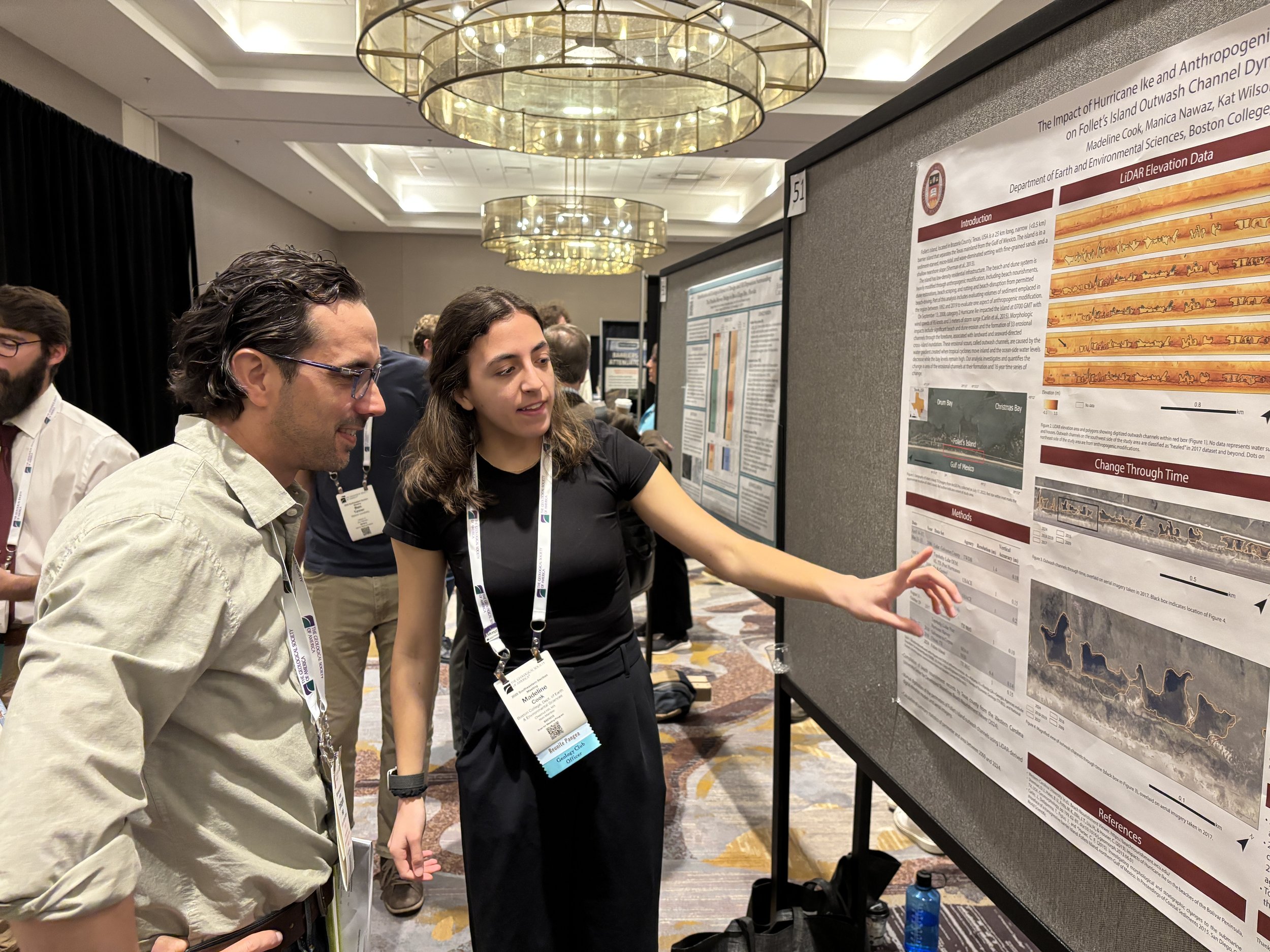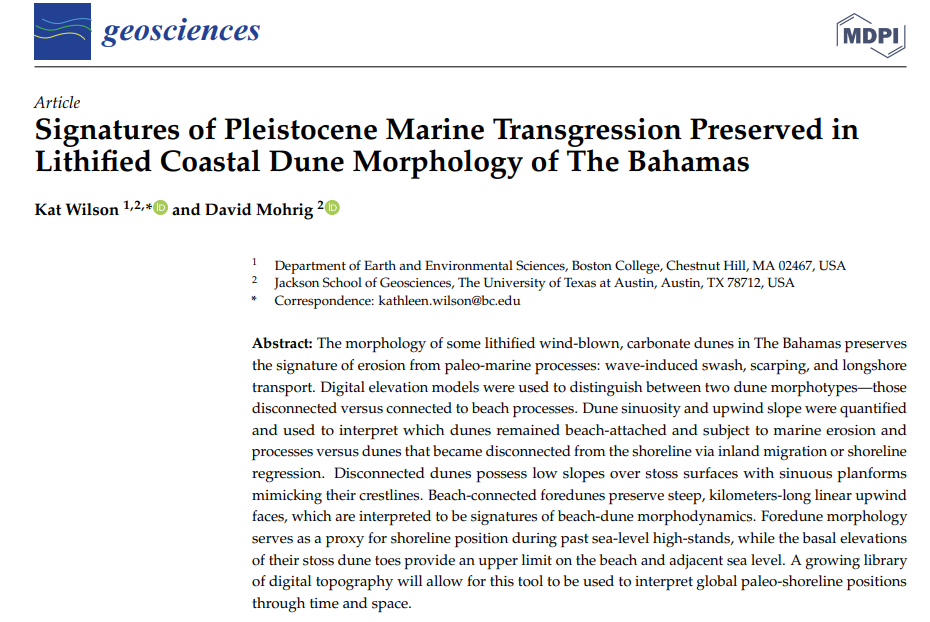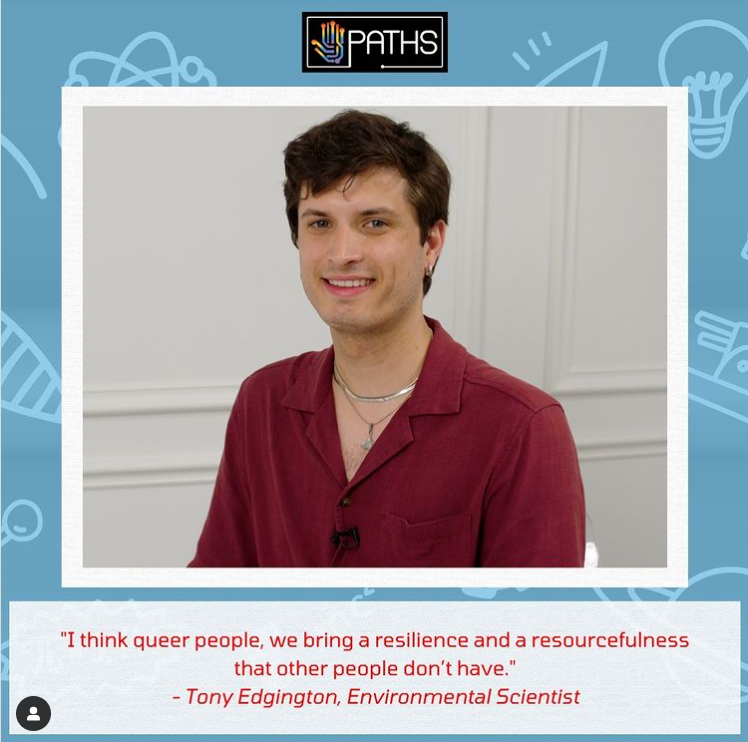
Recent Lab News

Undergraduate researcher Maddie Cook graduates from Boston College
Maddie joined the COMPASS Lab in July 2024 and completed an undergraduate honors thesis titled Follet’s Island: An Analysis of Outwash Channel Dynamics Following Hurricane Ike. She graduated cum laude with a B.S. in Environmental Geoscience. She is planning to pursue a Master’s in Environmental Science and Policy at Northeastern University. Congratulations Maddie!

COMPASS Lab Members attend Coastal Dynamics in Aveiro, Portugal
PhD Students Tony Edgington and Manica Nawaz and PI Wilson attended Coastal Dynamics 2025. Manica presented within the Beach and Dunes Morphodynamics poster session. PI Wilson co-organized and presented in the Women in Coastal Geoscience and Engineering special session. Additionally, Tony, Manica, and Kat attended short courses and technical visits.

Undergrad research assistant Maddie Cook presents at Southeast GSA
Undergrad research assistant Maddie Cook presented her senior thesis at Southeast Regional GSA. Her thesis is titled “FOLLET’S ISLAND: AN ANALYSIS OF OUTWASH CHANNEL DYNAMICS FOLLOWING HURRICANE IKE”

PI Wilson invited to contribute to the Future of Nearshore Processes Research Report
PI Kat Wilson was invited to contribute to the Future of Nearshore Processes Research Report. She authored the section on Mesoscale Coastal Dynamics within the Sediment Transport and Morphodynamics chapter. The publication is forthcoming.

COMPASS Lab Members presented at AGU Fall Meeting 2024
PhD students Manica Nawaz and Tony Edgington presented posters within Coastal Geomorphology and Morphodynamics and the Ecohydraulics and Ecomorphodynamics: Biophysical Interactions in Natural and Engineered Aquatic Systems sessions. PI Wilson presented an invited talk within the Linking Nearshore and Onshore Sediment Transport Processes and Geomorphic Responses: Insights from Field, Laboratory, and Modeling Studies session.
PI Wilson also co-chaired the Coastal Geomorphology and Morphodynamics sessions.

PI Wilson & Prof. Snyder co-lead Environmental Geoscience Senior Seminar Field Trip
PI Wilson and Prof. Noah Snyder led a 5-day Source to Sink field trip down the Chattahoochee-Flint-Appalachicola watershed with a group of BC EESC undergraduates and COMPASS lab PhD students, Tony Edgington and Manica Nawaz.

PI Kat Wilson receives NSF RAPID Award
Wilson received funding from NSF Geomorphology and Land Use Dynamics to investigate the compound morphologic impacts of sequential low-intensity tropical cylcones in barrier island environments.

PI Wilson attends the 2024 USCRP Decadal Visioning Workshop
PI Wilson attended the 2024 US Coastal Research Program Decadal Visioning Workshop in St. Petersburg, FL. The workshop brought together Federal Agencies, Stakeholders, and Academia to identify and prioritize key management challenges and high priority science gaps to guide the next decade of coastal research.

New Publication!
Kat published new paper in Geosciences. The project uses high resolution topography data to interpret two distinct forms of coastal dunes observed across The Bahamas. Signatures of beach-attached coastal foredunes provide a lateral indication of the maximum sea level transgression during past interglacial phases. You can access it here.

Tony interviewed by LGBT Tech
Tony was recently interviewed by LGBT Tech for their PATHS program, a series creating visibility of LGBTQ+ individuals working in STEAM & empowering LGBTQ+ youth and young adults to pursue their passions in STEAM fields. Watch the interview here.

Manica Attended FERS
In October, Manica attended the Future Earth Research School on Sea Level Rise and Adaptation hosted by CMCC Foundation - Centro Euro Mediterraneo sui Cambiamenti Climatici. Over two weeks, the students learned about the causes and impacts of sea level rise, while learning from global experts on adaptation strategies.

Congratulations, Manica!
Incoming PhD student, Manica Nawaz, successfully defended her master’s thesis from Brooklyn College. Her thesis is titled “Exploring the Formation and Significance of New York Bight Concretions” supervised by Dr. John Chamberlain. Congrats, Manica!

Congratulations, Tony!
Incoming PhD student, Tony Edgington, successfully defended his master’s thesis at the University of Connecticut. His thesis was titled “Integrated provenance analysis of the western Carboniferous Paganzo Basin, Sierras Pampeanas, Argentina: Insights into paleogeography and tectonism of the southwest Gondwanan margin” supervised by Dr. Julie Fosdick. Congrats, Tony!

New Publication!
Kat co-authored a manuscript in Nature. Using publicly available geochemical data from the Bakken shale, we identified basin-wide trends in redox sensitive elements (e.g., Mo and V), revealing expanding anoxic conditions through the Devonian-Carboniferous transition. Stepwise flooding in shallow interior basins, like the Williston, & onset of euxinia was widespread in this time, leading to large scale deposition of black shales and hydrocarbon reserves. In this work, we suggest that euxinic expansion in the shallow habitable zone of the oceans also contributed to the pattern and severity of Late Devonian mass extinction, and that hydrogen sulfide toxicity played a key role in shifting Phanerozoic biodiversity. You can read it here.